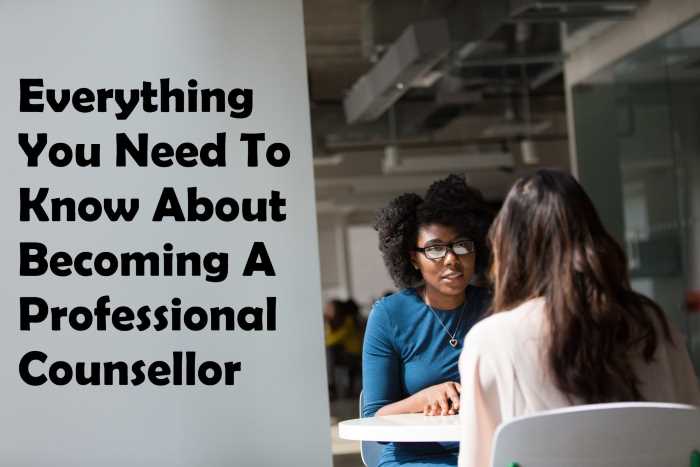October 2020 - We know that mental health is incredibly important and the selfless professionals who devote their lives to helping others through their darkest times are real-life superheroes that should be praised and respected.
If you've ever interacted with a professional counsellor you'll know just how beneficial their non-judgmental care and support can be. If you're the sort of person who likes to help others then perhaps counselling is the perfect career path for you but, before you make the leap, here's everything you need to know about becoming a professional counsellor.
What Does A Counsellor Do?
Counsellors are a crucial part of our healthcare system. They help our society function by helping those in need through their most vulnerable times, stepping in and nurturing someone through a significant life change, providing sound and non-judgmental support.
So, what exactly is a counsellor? Basically, a counsellor is a trained, objective mental health professional who offers assistance largely through talk based therapy helping a patient in need to talk through their personal problems and develop positive coping mechanisms and move forward positively.
What Are Some Common Misconceptions?
Even though many of us have counsellors themselves, there are many misconceptions about the work being done by counsellors. For example, despite misconceptions, not all counsellors do the same thing or perform the same sort of therapy. Each counsellor will combine evidence-based practice with their own personality, clinical experience and tailor their approach to their patients needs. There are also specific counsellors who work with addiction, families, couples, grief or youth - these areas will all have different approaches that work for them. A similar misconception is that counsellors give advice, counsellors do not give patients advice. The role of a counsellor is not to tell someone what to do, rather it is to offer suggestions without pressure and to provide a safe space within which someone can assess and create their own solutions. Similarly if you're not sure if counselling is a good career path for you there's one more misconception we have to bust that might put your mind at ease: counsellors do not necessarily have to have their own lives together. Counsellors are people too and sometimes they are dealing with things in their personal life that means that they might be suffering or in pain but they can keep that separate from their professional career.
How Does One Train To Become A Counsellor?
There are many ways one could become qualified as a professional counsellor. You could take a course in university or through a tertiary education provider if you've made the choice to become a counsellor straight out of school or, if you're making a career change to become a counsellor you might find an online counselling course more accessible.
What Jobs Are Available To Someone With A Counselling Degree?
Counsellors can be employed in many different sectors. Counsellors employed in the public sector typically work in schools, correctional facilities, rehabilitation centres and government-funded health clinics or crisis clinics. Alternatively, you could be a self-employed counsellor with your own counselling business. A real benefit that comes from being self-employed is that you'd be able to bring dedicated support to regional and remote Australia.
Whether you're privately or publicly employed you will be working to support your patients through emotional and mental health concerns that have come up in their private lives. Oftentimes you'll also be working as part of a team with other health professionals, referring to each other as the needs arise.
Alternatively, if you graduate with a Diploma of Counselling but aren't interested in pursuing a professional clinical career, the skills you will have learnt will help you work in a range of other professions. People with counselling backgrounds make great nurses, medical professionals, social workers, teachers and even religious ministers. For more information on how to start your career as a professional counsellor, check out this article.
So, consider the career and make a change today!
More Psychology articles

Fundamentals of Psychology

Psychology

